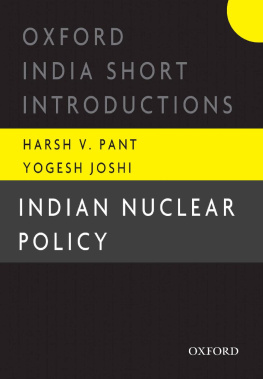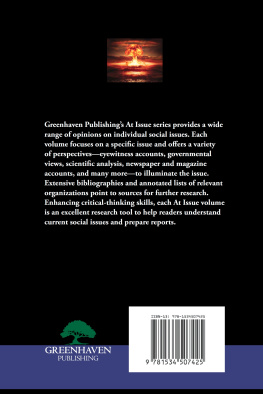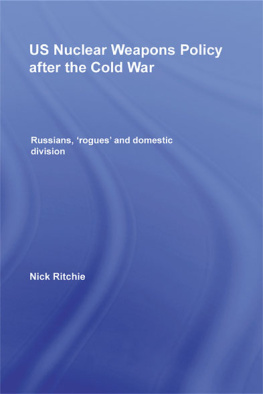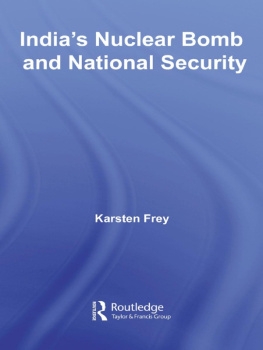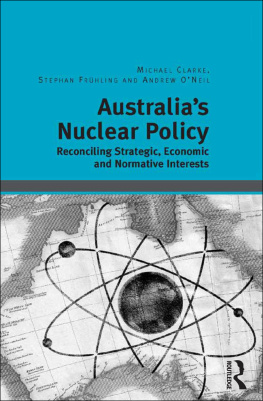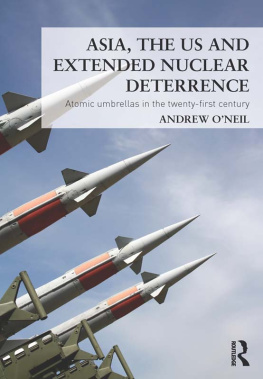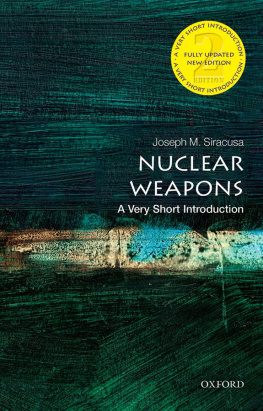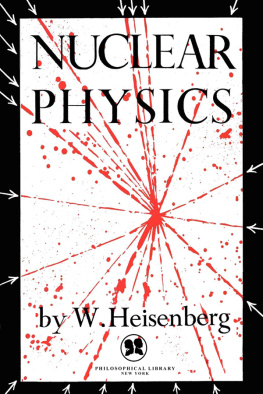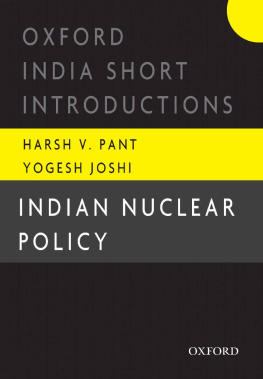OXFORD
INDIA SHORT
INTRODUCTIONS
INDIAN NUCLEAR
POLICY
The Oxford India Short
Introductions are concise,
stimulating, and accessible guides
to different aspects of India.
Combining authoritative analysis,
new ideas, and diverse perspectives,
they discuss subjects which are
topical yet enduring, as also
emerging areas of study and debate.
OTHER TITLES IN THE SERIES
Monetary Policy
Partha Ray
The Civil Services in India
S.K. Das
Panchayati Raj
Kuldeep Mathur
Affirmative Action in India
Ashwini Deshpande
The Right to Information in India
Sudhir Naib
The Indian Middle Class
Surinder S. Jodhka and Aseem Prakash
Bollywood
M.K. Raghavendra
Citizenship in India
Anupama Roy
Business, Institutions, Environment
Runa Sarkar
Indian National Security
Chris Ogden
Party System in India
Rekha Diwakar
For more information, visit our website:
https://india.oup.com/content/series/o/oxford-india-short-introductions/
OXFORD INDIA SHORT INTRODUCTIONS
INDIAN NUCLEAR POLICY
HARSH V. PANT
YOGESH JOSHI


Oxford University Press is a department of the University of Oxford.
It furthers the Universitys objective of excellence in research, scholarship,
and education by publishing worldwide. Oxford is a registered trademark of
Oxford University Press in the UK and in certain other countries.
Published in India by
Oxford University Press
2/11 Ground Floor, Ansari Road, Daryaganj, New Delhi 110 002, India
Oxford University Press 2018
The moral rights of the authors have been asserted.
First Edition published in 2018
All rights reserved. No part of this publication may be reproduced, stored in
a retrieval system, or transmitted, in any form or by any means, without the
prior permission in writing of Oxford University Press, or as expressly permitted
by law, by licence, or under terms agreed with the appropriate reprographics
rights organization. Enquiries concerning reproduction outside the scope of the
above should be sent to the Rights Department, Oxford University Press, at the
address above.
You must not circulate this work in any other form
and you must impose this same condition on any acquirer.
ISBN-13 (print edition): 978-0-19-948902-2
ISBN-10 (print edition): 0-19-948902-5
ISBN-13 (eBook): 978-0-19-909383-0
ISBN-10 (eBook): 0-19-909383-0
Typeset in 11/14.3 Bembo Std
by The Graphics Solution, New Delhi 110 092
Printed in India by Replika Press Pvt. Ltd
Contents
India has travelled a long distance from being a nuclear pariah to a de facto member of the nuclear club. As India continues to search for its complete integration into the global nuclear order, this book explores the trajectory of Indian nuclear policy from the early days since Independence to the present. In so doing, it hopes to underline key debates, both policy and conceptual, that have shaped this trajectory.
This is a huge subject but the constraints of Oxford India Short Introductions (OISI) series forced us to be more focused and disciplined in our approach. We would like to thank the editors at Oxford University Press for patiently working with us on the project till completion. Thanks to Observer Research Foundation, New Delhi, where both of us were based during the conception and completion of the project. We are especially thankful to Gaurav Sharma who generously shared his PhD dissertation on India and nuclear disarmament with us, as well as to Akshay Ranade and Ketan Mehta for their help in preparing the bibliography. This book would not have been possible without the time so many members of the Indian scientific, defence, and foreign policy establishment gave us, sharing their views and ideas. Finally, we owe a deep debt of gratitude to our respective families whose support has kept us afloat in more ways than one.
This book is dedicated to our teachers who have shaped our intellectual trajectories. Nothing would have been possible without them.
| AEC | Atomic Energy Commission |
| BARC | Bhabha Atomic Research Centre |
| BJP | Bharatiya Janata Party |
| CBM | Confidence-Building Measure |
| CIRUS | Canada India Reactor Utility Service |
| CMD | Credible Minimum Deterrence |
| CTBT | Comprehensive Test Ban Treaty |
| DAE | Department of Atomic Energy |
| DRDO | Defence Research and Development Organisation |
| ENDC | Eighteen Nation Disarmament Committee |
| FMCT | Fissile Material Cut-off Treaty |
| GE | General Electric |
| IADA | International Atomic Development Authority |
| IAEA | International Atomic Energy Agency |
| IAF | Indian Air Force |
| IGMDP | Integrated Guided Missile Development Programme |
| IMF | International Monetary Fund |
| JIC | Joint Intelligence Committee |
| kg | Kilogram |
| km | Kilometre |
| MEA | Ministry of External Affairs |
| MIRV | Multiple Independently Targetable Re-entry Vehicle |
| MoD | Ministry of Defence |
| MoF | Ministry of Finance |
| MTCR | Missile Technology Control Regime |
| MWT | Megawatt Thermal |
| NAI | National Archives of India |
| NCA | Nuclear Command Authority |
| NDA | National Democratic Alliance |
| NFU | No First Use |
| NMML | Nehru Memorial Museum Library |
| NNPA | Nuclear Non-proliferation Act |
| NNWS | Non-nuclear Weapon States |
| NPT | Non-Proliferation Treaty |
| NSAB | National Security Advisory Board |
| NSG | Nuclear Suppliers Group |
| PMO | Prime Ministers Office |
| PNE | Peaceful Nuclear Explosion |
| R&D | Research and Development |
| RAPS | Rajasthan Atomic Power Station |
| RAW | Research and Analysis Wing |
| SFC | Strategic Forces Command |
| SLBMs | Sea-Launched Ballistic Missiles |
| TAPS | Tarapur Atomic Power Stations |
| TIFR | Tata Institute of Fundamental Research |
| TNWs | Tactical Nuclear Weapons |
| UK | United Kingdom |
| UKAEC | United Kingdom Atomic Energy Authority |
| UN | United Nations |
| UNDC | United Nations Disarmament Commission |
| UNGA | United Nations General Assembly |
| US | United States |
| USAEC | US Atomic Energy Commission |
| USSR | Union of Soviet Socialist Republics |
Indias first prime minister, Jawaharlal Nehru, laid the foundations of an elaborate atomic energy programme in April 1948, less than a year after Indias independence. Yet, it took Indian decision-makers more than 50 years to declare the country a nuclear weapon state in May 1998. For the first five decades of Indias independence, its nuclear policy remained highly ambivalent. On the one hand, it continuously strived to develop all aspects of atomic energy, including an explosive nuclear capability. On the other, it maintained a moral and political commitment to peaceful uses of nuclear energy and vouched vehemently for nuclear disarmament. This ambivalence was partly situated in the duality of the atom: it could be used for peaceful as well as destructive purposes. It was also a result of the ideological dimension of Indian foreign policy and Indias relative lack of material power. In fact, this ambivalence continued despite changes in Indias security environment and transitions in domestic politics and individual leadership. Yet, over the years, the weight of all these factors shifted continuously towards a point where ambiguity could not be sustained further. Therefore, rather than consciously choosing a nuclear weapons path, India was almost forced into being a nuclear weapons state. And once India crossed the nuclear rubicon in May 1998, it managed to transform itself into a major nuclear power. Also, within two decades of this event, India is not only making rapid technological advancement in its nuclear capability but has also managed to get accommodated in the global nuclear order. It is the only nuclear weapon state apart from the five established nuclear powers which is legally allowed to have both a nuclear weapons programme and a civilian nuclear energy programme. India is determined towards full integration in the global nuclear order, evident in its bid to become a member of technology control regimes such as the Nuclear Suppliers Group (NSG). This transition in Indias nuclear identity has been accompanied by its transformation into a major economic power and underlines a pragmatic turn in its foreign policy thinking since the end of the Cold War.
Next page
